21 sustainable initiatives in the fashion industry in September 2020
In September, too, the efforts made by the fashion industry in the areas of sustainability, upcycling, transparency and circular economy increased. There has been great progress, especially when it comes to the development of sneakers, because sneakers are now increasingly sustainable, vegan, recyclable and soon also compostable. There is also a first store for sustainable sneakers in Germany. When it comes to collaborations, industry leaders and brands remain interested and join forces for innovative projects. FashionUnited found sustainable initiatives that were presented in September.
Cooperations & innovations
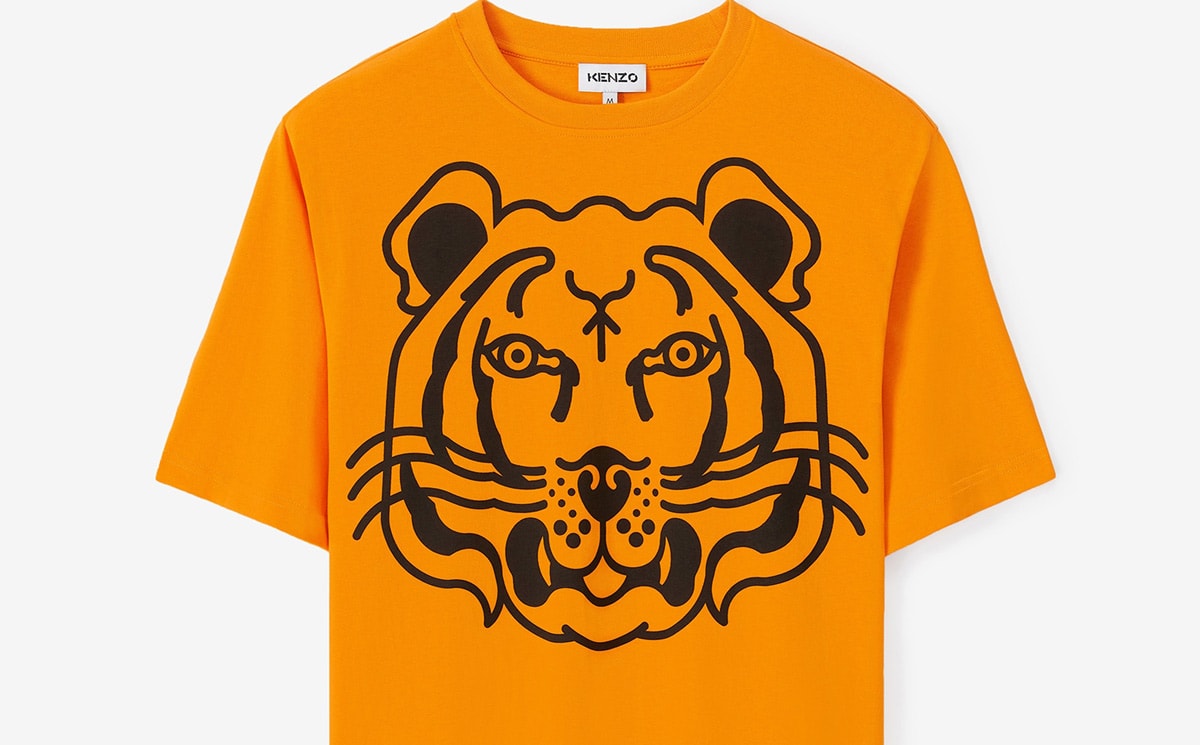 Photo: Kenzo
Photo: Kenzo
LVMH-owned French luxury fashion brand Kenzo – whose recurring motif has long been the tiger – has teamed up with the World Wildlife Fund (WWF) to double the number of wild tigers by 2022. To this end, Kenzo has released an 18-piece special collection with tiger designs and logos, consisting of t-shirts, sweatshirts and sweatshirt dresses. All are made from 100 percent organic cotton and are GOTS certified.
Continue reading
 Photo: Bestseller A / S
Photo: Bestseller A / S
The Danish clothing company Bestseller A / S is pushing ahead with its “Fashion FWD” sustainability strategy with the establishment of the “Fashion FWD Lab”. It is about “an experimental playground for sustainability, on which new and innovative solutions are screened that contribute to shaping the future as it is necessary for the fashion industry”. At the same time, the group announced the conclusion of a long-term partnership with the Finnish textile manufacturer Spinnova. This is to investigate how the fibers developed by Spinnova, which are made from wood and recycled waste without the use of harmful chemicals, can be used in the products of the group brands.
Continue reading
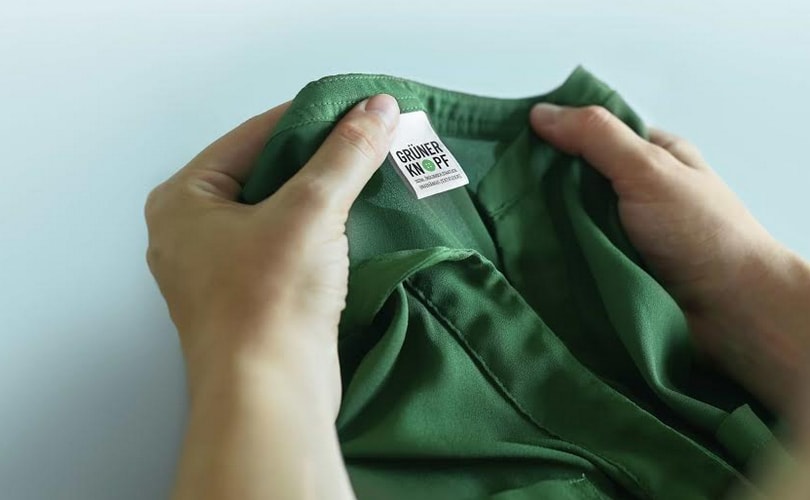 Photo: BMZ | Agency Tinkerbelle
Photo: BMZ | Agency Tinkerbelle
One year after the introduction of the “Green Button” textile label, 52 companies are participating in the label for socially and ecologically sustainable textiles. In the economically difficult first half of 2020 alone, more than 50 million items with the green button were sold, including 35 million items of clothing, said the Development Ministry. Extrapolated, this corresponds to a market share between 1.5 and 3 percent.
Continue reading
 Photo: open letter
Photo: open letter
2020 seems to be the year that various representatives of the fashion industry speak out in public. In another open letter, this time 15 leading players in the fashion industry are calling for the textile and clothing industry to implement sustainable efforts more quickly in order to guarantee that sustainability remains a focus even in the aftermath of Covid-19. Signatories include apparel manufacturers like Burberry, Calvin Klein, H&M, Primark, PVH, Tchibo and Tommy Hilfiger, and organizations like WWF, the Sustainable Apparel Coalition and ZDHC.
Continue reading
Brands & Retailers
 Photo: Wrangler
Photo: Wrangler
The US denim brand Wrangler has announced plans for a new pair of jeans that take advantage of regeneratively grown cotton. As part of the Ellen MacArthur Foundation’s (EMF) Jeans Redesign Project, the company is now looking for cotton farmers who can demonstrate and document improvements in soil carbon and biodiversity and who want to apply for their cotton to be used in a Wrangler Retro Premium jeans is used.
Continue reading
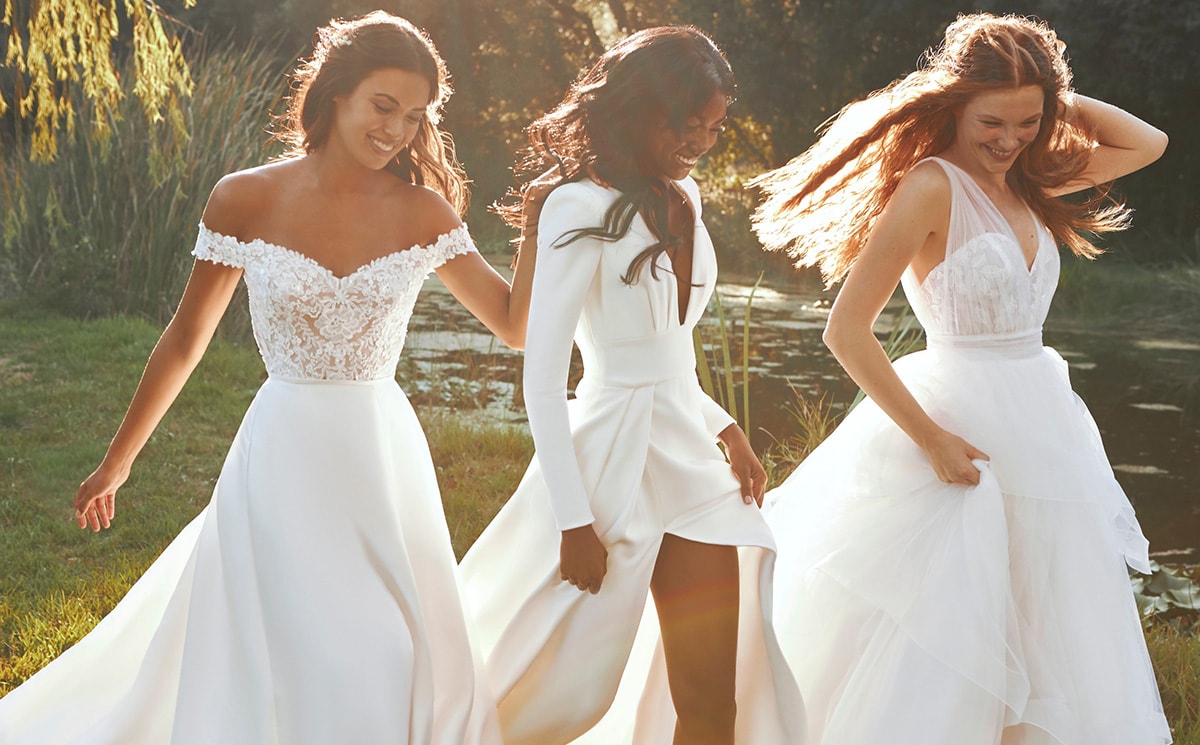 Photo: Pronovias Group
Photo: Pronovias Group
The Pronovias Group starts the ‘#WeDoEco’ initiative and brings sustainable bridal fashion onto the market. The first presentation took place during Valmont Barcelona Bridal Fashion Week. The new initiative of the Spanish bridal wear manufacturer is to encompass all brands of the group. A total of 15 dresses from the Pronovias and Nicole brands, which are labeled as ‘360 Grad Eco’, and a total of 24 dresses from the Pronovias Atelier, St. Patrick and White One brands, which are ‘Eco-friendly’, will be presented at the Bridal Week. The two types differ in that the components of the ‘eco-friendly’ clothes are not 100 percent sustainable, i.e. not locally produced and details such as beads, zippers and labels are not sustainable.
Continue reading
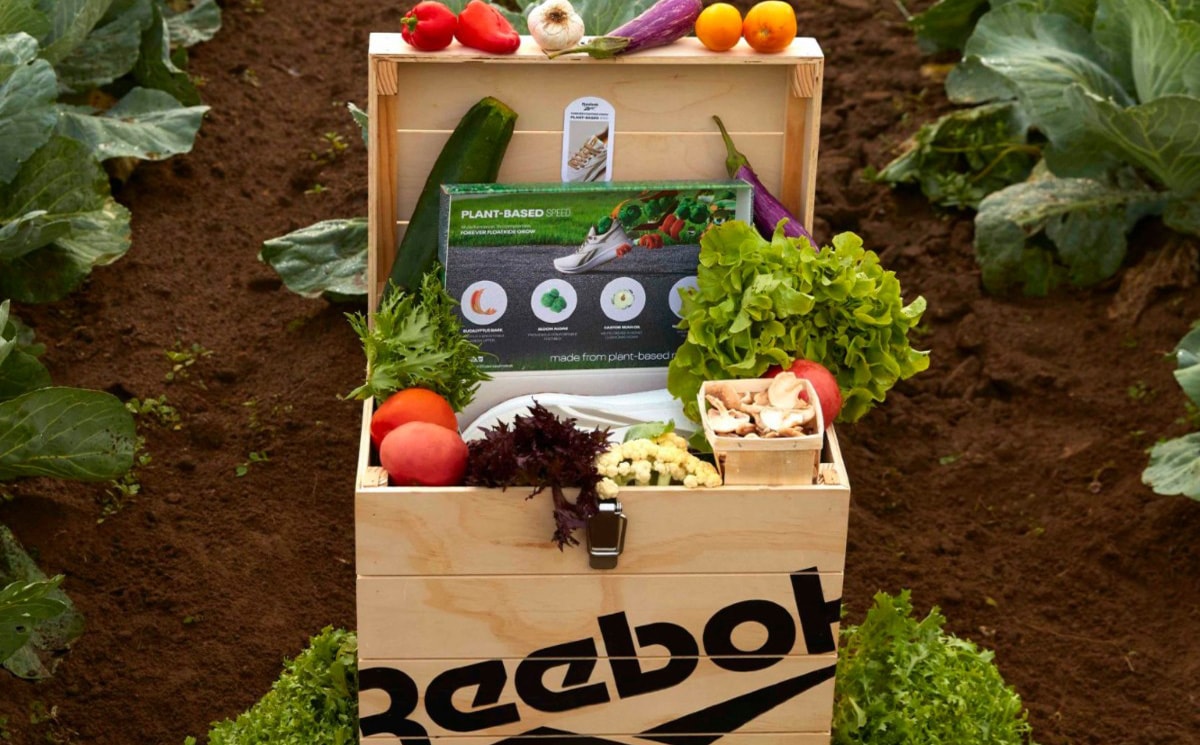 Photo: Reebok
Photo: Reebok
As announced in December, the sports brand Reebok is now ready with a plant-based running shoe that can compete with the best performance running shoes on the market in terms of performance, according to the company. Reebok’s Forever Floatride Grow is made from castor seed oil, bloom algae, eucalyptus fiber and rubber and is an updated version of the award-winning Forever Floatride Energy 2. The reactive and highly cushioning midsole is just as powerful and light, but the plant-based model is made from sustainably grown castor seeds.
Continue reading
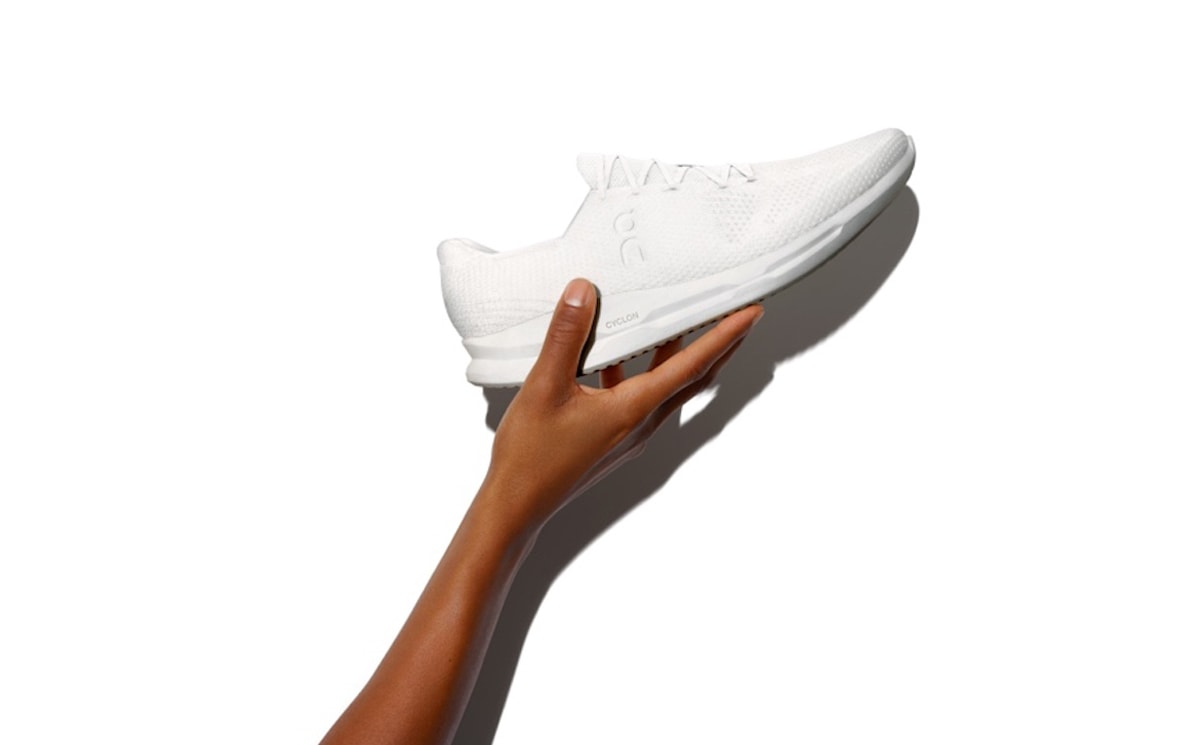
Photo: On
The Swiss sports shoe specialist On is taking the next step towards the circular economy and is planning a new subscription model called the Cyclon. For a monthly contribution of 35 Swiss Francs (29.95 euros), participants receive the exclusive latest running shoe model from the label, which is also called Cyclon and is made from completely recyclable materials. You can send the shoes back at the “end of their life” and you will automatically receive a fresh pair. On processes the returned shoes into new products.
Continue reading
 Photo: Giesswein Sneakers / sneakers-unplugged.de
Photo: Giesswein Sneakers / sneakers-unplugged.de
Sneakers are one of the items that will continue to be in demand; likewise the trend towards more sustainability. The Düsseldorf start-up Unplugged thought, ‘Why not combine the two areas?’ and opened the first store for sustainable sneakers in German-speaking countries in September.
Continue reading
Tommy Hilfiger aims to become a more sustainable organization that “doesn’t waste anything and welcomes everyone”. As part of its new sustainability plan “Make it Possible”, the brand of the US clothing company PVH Corp aims to produce fully recyclable items within ten years. In its sustainability plan, Tommy Hilfiger lists 24 goals to become a circular and inclusive organization by 2030. The “Circle Round” theme is one of the four main pillars of the project: all products are to be designed, manufactured and sold based on circular principles in ten years’ time. All materials used should become part of a biological or technical cycle again after they have served their purpose in the product.
Continue reading
Also interesting:
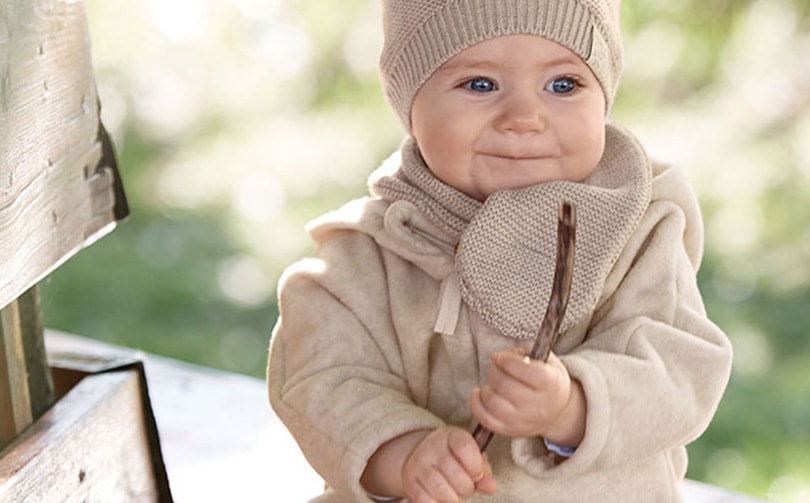 Photo: Tchibo
Photo: Tchibo
Many parents shy away from investing in children’s fashion, as the next growth spurt or the wild climbing party can quickly make their expensive favorite piece obsolete. The Hamburg trading company Tchibo GmbH wants to counteract this with sustainable, long-lasting children’s fashion that grows with them. That is why under the label “We care for you” you can now buy fashion for babies and children that is ecological, durable and gender-neutral, such as rain pants made from 30 recycled PET bottles or a hat made from organic cotton. By 2021, all cotton textiles should also be produced from sustainable sources. Tchibo also relies on cooperation with renowned certifications such as the Global Organic Textile Standard (GOTS) and the state seal Der Grüne Knopf, which was introduced last year.
Continue reading
 Photo: ascetic
Photo: ascetic
More sustainable clothing is all well and good, but the fact remains that every piece of clothing has a footprint in terms of water and energy consumption and CO2 generation. The Swedish slow fashion label Asket has therefore introduced the “Impact Receipt”, a receipt that shows exactly what a piece of clothing costs the environment. The aim of the label is to ensure that consumers think carefully before they buy and that they wear their clothes longer.
Continue reading
Training, trade fairs & companies
Scientists at the Leuphana University of Lüneburg have developed a fashion app that supports users in sustainable consumption. It’s about environmental and social aspects: users can formulate goals for their purchases, such as the monthly number of textiles purchased or the fair trade share of purchases. At the end of the month, they receive feedback from the app in the form of points and awards. The Green Fashion Challenge App is a free online tool, available at green-fashion.app/.
Continue reading
 Photo: Pakhuis de Zwijger
Photo: Pakhuis de Zwijger
Under the name Reflow, six European cities are working on the transition to a more circular economy. Milan focuses on food, Vejle on plastic, Paris on events and fairs, Klausenburg on housing and Berlin on energy. The Amsterdam initiative, which focuses on clothing and textiles, is a pilot project and the aim is to encourage people as much as possible to take charge of things. To this end, the city of Amsterdam works with the organizations De Waag, Pakhuis de Zwijger, BMA-Techne and Metabolic.
Continue reading
Photo: Kenzo




